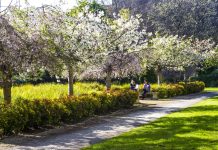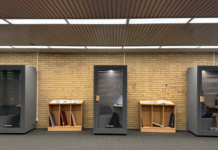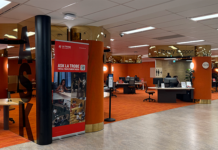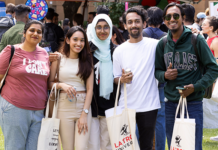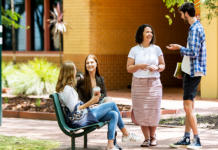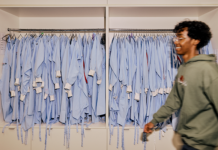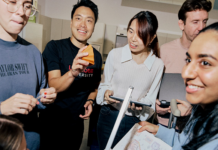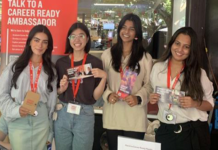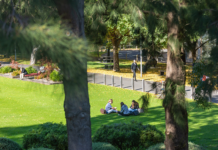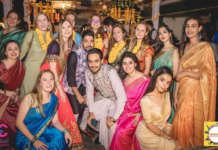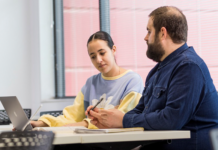Help, I’m graduating this year and want to keep accessing research and learning resources. Where do I look?!
Never fear, your librarians are here!
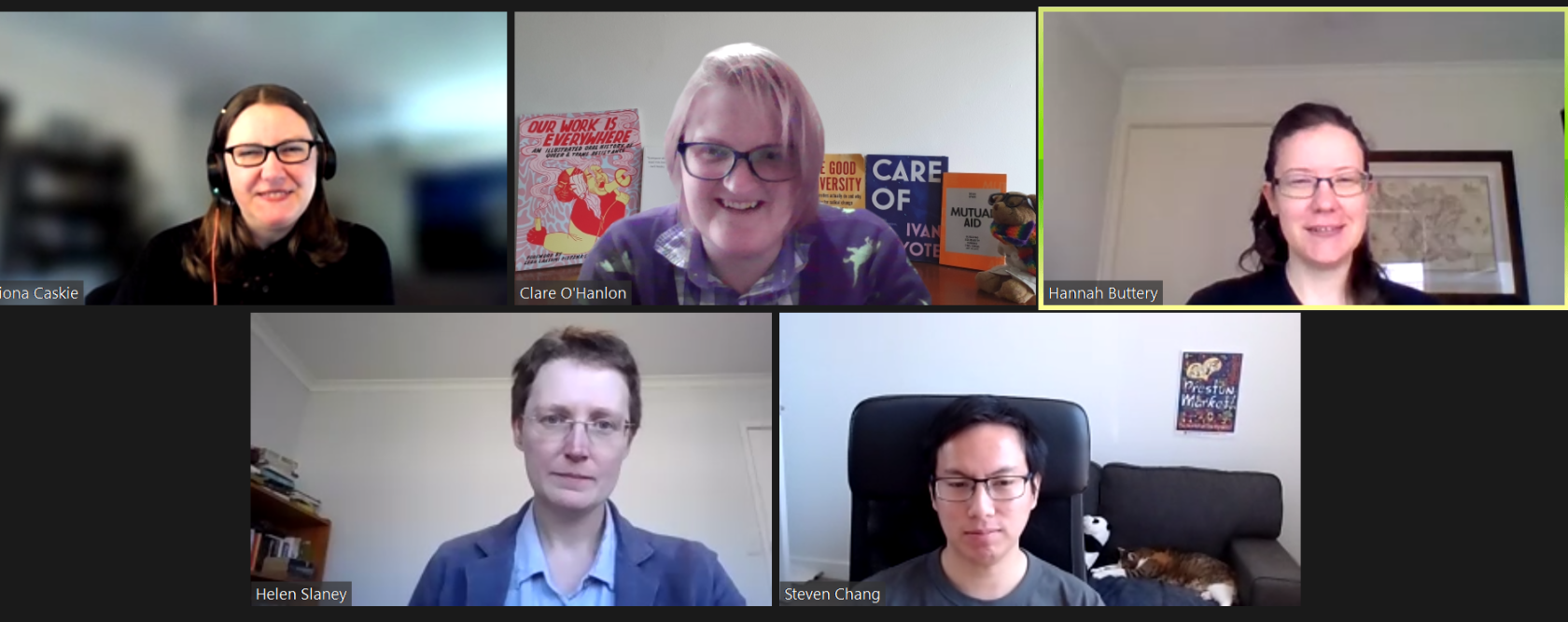
Last week Clare unveiled the curtain behind the scenes at the library! This week, they have been joined by some colleagues to help you find research, connect with communities, and keep learning after graduation through the world of open education and scholarship and beyond – just in time for Open Access Week!
I want to read textbooks and do free online courses!
Steven Chang is a former medical librarian who has worked in hospital libraries providing clinical evidence for patient care. He now helps to make La Trobe courses more affordable by replacing expensive textbooks with open educational resources. Steven recommends these five places to look for resources you can access for lifelong learning after you graduate.
- Open Textbook Library: 900+ online textbooks freely accessible at any time (all disciplines)
- La Trobe eBureau: a range of La Trobe authored open textbooks used in La Trobe courses
- MERLOT Health Sciences Community Portal: free online learning resources for health professionals
- MIT Open CourseWare: collection of entire online courses that are publicly available
- OpenStax: core textbooks for various disciplines at no cost
I need access to data!
As our resident research data management wiz, Hannah Buttery says: depending on what you are looking for, there is a wide range of resources available online to access open datasets after graduation. When looking for Australian specific information, you can access the Australian Bureau of Statistics (ABS) for a range of statistics about Australia’s economy, environment, industry and people. The Australian Data Archive (ADA) and Research Data Australia provide access to digital data from a range of government agencies, Universities and other research organisations. And of course, OPAL has data sets available for you as well!
Federal, state and increasingly local governments have open data policies that provide public access to their datasets. You can search for datasets relating to health, education, community, land, transport and more.
If you are looking for datasets at an international level some of the places to go looking for them include WikiData, Google Datasets, World Health Organisation (WHO) Open Data and World Bank Open Data. Alternatively, EU Open Data Portal provides information from Europe, and Data.gov is from the United States government data catalogue.
This is a small selection of what is out there, to help you on your data finding journey as you complete your studies and move forward.
I’m looking for scholarly publications!
Helen Slaney, Scholarly Publications team leader and former academic, recommends the following resources for finding open research publications:
Browser extensions
Repositories
- OPAL: this is La Trobe’s own Institutional Repository and contains Open Access copies of publications and theses by La Trobe scholars
All universities should have their own repository – the equivalent of OPAL. If you find a paywalled article or book chapter that you want to read and it’s less than 10 years old, it’s likely to have a repository copy available. Older material is less likely to have been deposited, but it’s still worth a shot. To identify the host university, check the affiliation of any of the authors at the top of the paper. This should be visible without downloading it.
Local and global repositories
- Open Access Australasia Repositories: a handy directory of all Australian university repositories
- Open DOAR: global directory of Open Access repositories, hosted by UK-based non-profit organisation JISC
- DOAJ – Directory of Open Access Journals: over 10,000 quality peer-reviewed OA journals from all disciplines
- DOAB – Directory of Open Access Books: the equivalent, for academic books
- JURN: search free academic articles, chapters and theses
- CORE: search for openly accessible content from repositories and journals
Subject-specific
- PubMed: for biomedicine and life sciences research from MEDLINE and beyond
- Humanities commons: for humanities research
- AustLII: for law and legal studies research
Often just searching in Google Scholar for the title of the paywalled resource will bring up a repository copy. You may need to click on the “Full text @ …” next to the result itself.
Libraries
You may not need an open access copy. Libraries such as the State Library of Victoria, National Library of Australia and local community libraries provide free public access to a wide range of online databases and resources. And of course, when you graduate and become part of La Trobe’s alumni community, you can access selected databases as an alumni library member, too.
If you find yourself working in a hospital or law firm after graduation, keep an eye out for a library and librarians there!
You can also find open access material in Library Search.
If all else fails… email the author! Most academics are pleased to share their work directly, especially if you can explain your professional interest or how you will apply their findings beyond academia.
I want to explore cultural collections!
To find Open Gallery, Library, Archive and Museum (GLAM) collections, Clare O’Hanlon, your friendly neighbourhood librarian by day and community archivist by night, recommends Trove as a gateway to GLAM collections in Australia. Some lesser-known open gems include Victorian Collections (a platform for community-led archives and museums, history groups and related collections) and Reason in Revolt: Documents of Australian Radicalism. One of the newest gems on the block is the Open GLAM section of OPAL – featuring material from the library’s special collections, La Trobe Art Institute, and the Dardalis Archives of the Hellenic Diaspora.
The best advice Fiona Caskie, learning librarian by day and community arts worker by night, received on graduation was to put your hand up for as many meaningful learning opportunities as possible (but take time out for yourself too), make connections and reflect on your experiences, and care for your colleagues and community. Some ways you can do this and keep learning and sharing knowledge outside of the university include:
- Volunteering at local neighbourhood houses and/or to support community events
- Attend industry events and invite alumni buddies to go with you
- Join all the libraries (Local, state and national!)
- Incendium Radical Library
- The Commons Library
- Melbourne Free Uni
- Creative Equity Toolkit
- Analysis and Policy Observatory
Bringing it all together, you can enjoy this guided tour of the secret world and community behind Wikipedia from our scholarly publications colleague and well-known Wikipedian Thomas Shafee. Learn how you can get involved and share your knowledge this way too.
Congratulations and all the best to all those who are graduating this year!
For more help understanding how to find and use information, current students can contact a librarian for help finding, accessing, borrowing, and referencing information via chat, phone, or email.

